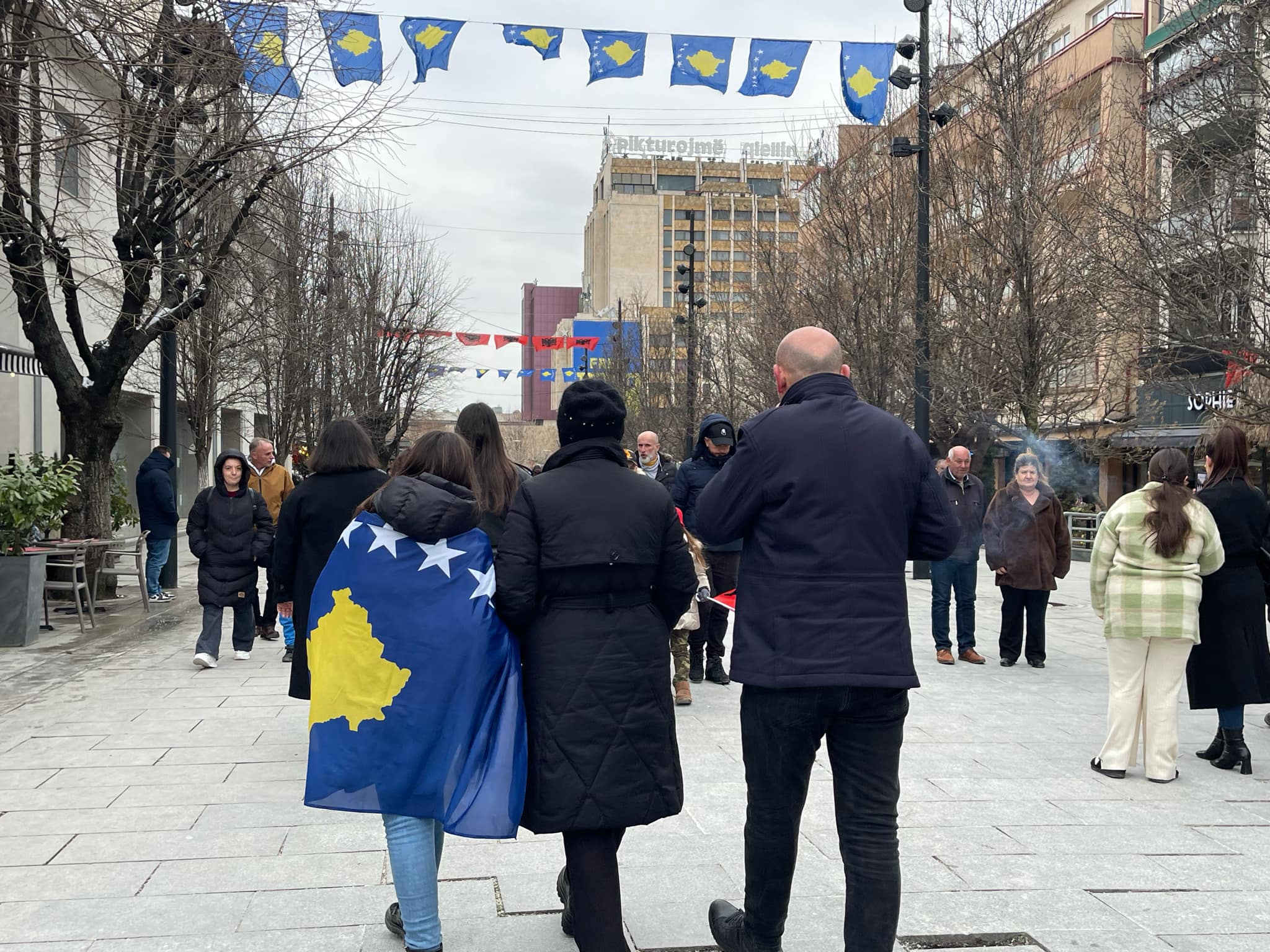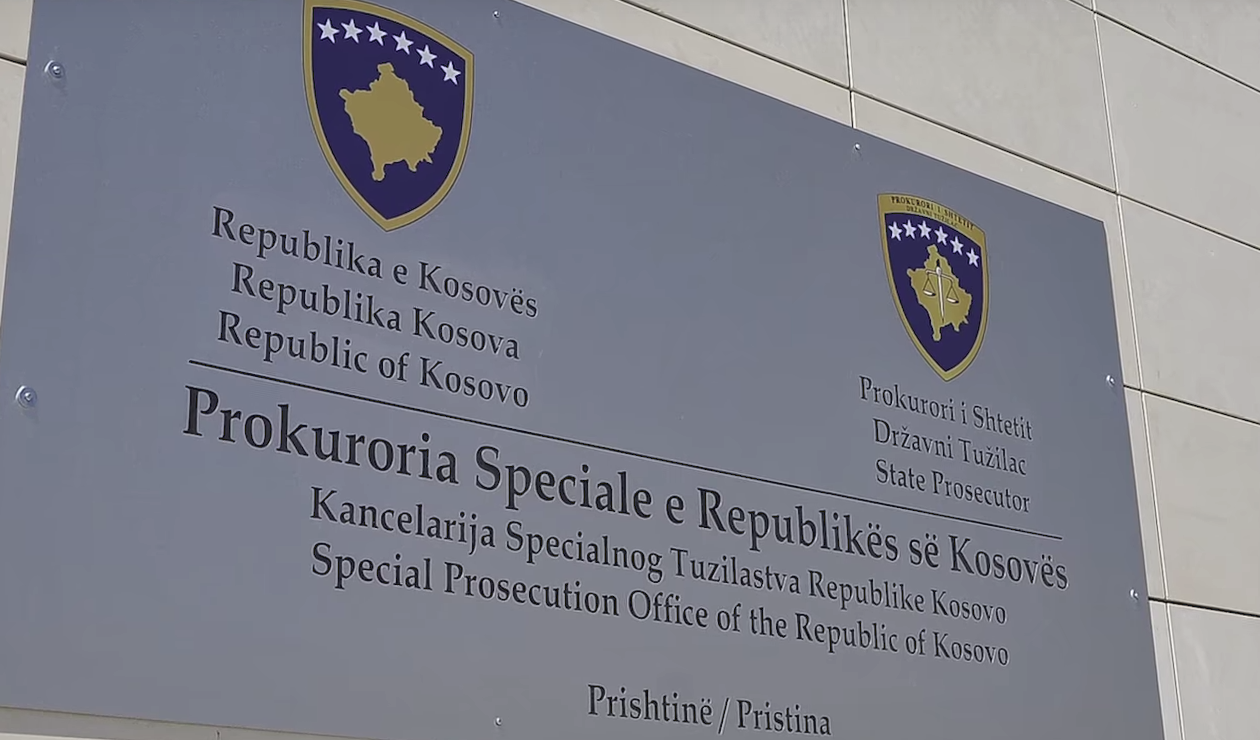Kosovo’s Ombudsperson, Naim Qelaj, warned that political interference and declining respect for fundamental rights are threatening Kosovo’s democratic progress and undermining the rights of its citizens, regardless of ethnicity or political belief.
In an interview for KALLXO Përnime TV Programme, broadcast on May 17, Kosovo’s Ombudsperson, Naim Qelaj, blamed the government’s attitude towards journalists and the hostile working environment it has created in recent years for Kosovo’s declining media freedom ranking in international reports.
Qelaj also noted that, in some cases, decisions made by judicial bodies are being influenced by public discourse, social media, politics, and the increasing polarisation of citizens, which, according to him, is unacceptable, and should raise alarms for every independent decision making institution.
The Ombdusperson called for more transparency within security bodies and urged authorities to refrain from exerting influence on public institutions, identifying both as ways to uphold democratic standards and maintain citizens’ trust.
“Authorities must reflect on every criticism, even if they believe that it does not reflect the full reality of the situation. The fact that in recent years there is a tendency to attack everything that is against government, has affected every field,” Qelaj stated.
Failure to secure Council of Europe membership—a blow to citizens’ rights

Citizens celebrate the 17th anniversary of Kosovo’s independence in the squares of Prishtina, February 17, 2025. Photo: Prishtina Insight
Naim Qelaj expressed disappointment over Kosovo’s failure to secure membership in the Council of Europe, CoE, and emphasised that this exclusion represents more than just a diplomatic setback.
“Kosovo’s membership in this organisation would have been a strong indicator that the country has achieved democratic standards comparable to other European nations,” Qelaj declared.
According to him, the failure is largely due to Kosovo’s internal political dynamics.
“In many meetings, I have urged for political barriers to be removed from this process. Membership in the CoE is in the [best] interest of all [ethnic] communities,” he stated.
He added that without CoE membership, citizens cannot access the European Court of Human Rights—a legal mechanism for justice in cases of unexecuted court decisions or human rights violations.
One of the key reasons Kosovo was left out of the Council of Europe’s Committee of Ministers agenda on May 17, 2024 was the government’s failure to send the draft statute of the Association of Serb-Majority Municipalities, which was prepared by the EU, to the Constitutional Court for interpretation.
Allegations of Police Harassment in the North
Ombudsperson Qelaj also addressed concerns raised by civil society organisations regarding alleged sexual harassment of ethnic Serb citizens by Kosovo Police officers in northern Kosovo.
Qelaj said he met with representatives from Serb community NGOs, the Kosovo Police Inspectorate, IPK, and the Director General of the Kosovo Police to examine the claims.
“The IPK has shown they are fully willing to uncover the truth. Such actions, if they occurred, are completely unacceptable,” he said.
However, according to Qelaj, the police have had no formal reports of any such incidents.
“I also believe that there is a tendency among some groups, who are possibly being influenced, to undermine the actions of the police. Naturally, I always side with the citizens and try to find facts and arguments.”
NGOs in northern Kosovo reacted to this statement by asking for more clarification on this assessment from Kosovo’s Ombudsperson.
“We were deeply concerned by your remark that, in the absence of officially reported cases, these allegations ‘could be part of an attempt by certain groups to discredit the reputation of the Kosovo Police,’” the statement reads.
“We have received more complaints of other kinds, like [needing to fulfil] address verification [requirements] for child benefits [and] delays in judicial procedures for obtaining personal documents, because some individuals are registered in Serbia and are facing issues.”
Qelaj described the situation in the north as nuanced, rather than tense.
“From my meetings with residents, the main concerns [they raised] were [about] the increased police presence—which they see as unnecessary because they want to be perceived as peaceful and not a threat to the country—and issues around personal documentation procedures,” he added.
He stressed the need for more transparency and efficient investigations by the Police Inspectorate for any allegation.
“I’ve even offered staff support from the Ombudsperson Institution to monitor any such cases in police stations, prosecutors’ offices, and courts. But there have been no such requests from the citizens themselves.”
The decline of media freedom

Media/Ilustration
Qelaj also raised alarm over Kosovo’s sharp decline in the 2025 World Press Freedom Index by Reporters Without Borders, where the country ranked 99th out of 180—down 24 places compared to 2024 and 43 places compared to 2023.
“This ranking reflects a political approach that has, in recent years, sought to undermine everything outside the executive government—including the media,” he stated.
Qelaj pointed to several contributing factors: legislative initiatives that threaten press freedom, hostile rhetoric against journalists, and attempts to weaken independent institutions.
“Unless there is a shift in the political approach, the situation will deteriorate further. Journalists will feel threatened, discouraged from speaking the truth,” he warned.
Qelaj did not spare Kosovo’s own legislative branch from criticism, pointing out that Parliament recently voted against the annual report of the Ombudsperson Institution.
“We are moving from a parliamentary republic to a government-dominated system,” he said. “Parliament’s oversight of the executive is practically nonexistent.”
Qelaj credited the Constitutional Court for playing a vital role in protecting against arbitrary government decisions.
“The Constitutional Court has played a role in preventing arbitrary decisions by public authorities. This is very important, as it could have had serious consequences for all citizens,” he concluded.
Criticism of the Kosovo Specialist Chambers and judicial system

Special Prosecution Office of Kosovo. Photo: BIRN
The Ombudsperson also expressed concern over the detention of former Kosovo Liberation Army, KLA, leaders at the Hague-based Kosovo Specialist Chambers, KSC, which he described as lacking transparency.
He criticised the appointment of the KSC Ombudsperson for not meeting basic criteria of independence.
“There is no international precedent where an Ombudsperson operates under the umbrella of a court. The court cannot claim impartiality while appointing its own human rights monitor,” Qelaj said.
“What is happening in this court gives me reason to suspect that Kosovo’s institutions are not trusted.”
He also shared that the court’s internal Ombudsperson invoked confidentiality when questioned, which Qelaj considers inconsistent with the true function of this role.
Qelaj also criticised the judicial system in Kosovo over issuance of improper court decisions.
Recently, 16 Serbian citizens were arrested in Gjakova/Djakovica and Prizren, some of whom were initially ordered into pre-trial detention for allegedly having an axe in their vehicle. All were later released.
The Supreme Court ruled that an axe is not considered a weapon under Kosovo law.
“This was a case that should prompt the entire justice system to reflect. No one should ever fall victim to prejudice or discriminatory rulings. Actions taken during criminal proceedings often vary depending on who is involved, and, to me, this is unacceptable.”, he added.
According to the lawyer, the root cause of decisions like these lies in the tone of public discourse, which is shaped by the media, social networks, political life, and the increasing polarisation of citizens.





